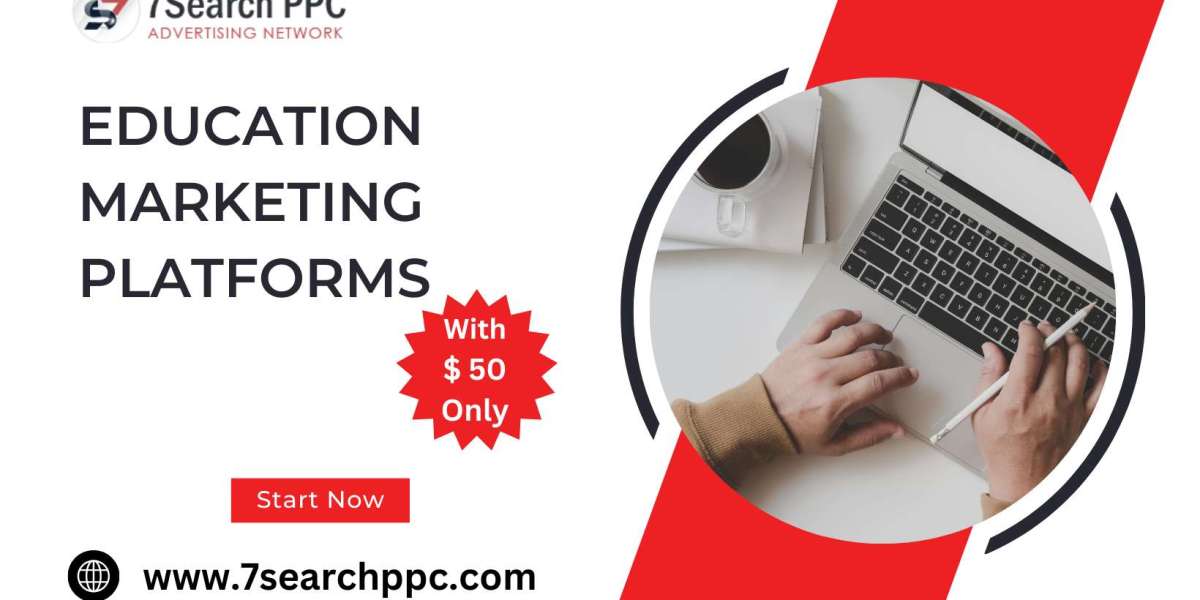In the digital age, where the internet has become an integral part of our daily lives, education marketing platforms play a pivotal role in connecting learners with educational content and resources. These platforms serve as intermediaries between educators, learners, and advertisers, facilitating the dissemination of educational information and enabling targeted advertising campaigns. Let's delve deeper into the concept of education marketing platforms and their significance in the realm of e-learning advertising.
Definition and Role
Education marketing platforms are online platforms or marketplaces specifically designed to cater to the educational sector. They offer a wide array of services, including content distribution, course promotion, student recruitment, and advertising opportunities. These platforms act as centralized hubs where educators can showcase their courses, learners can discover relevant content, and advertisers can reach their target audience through targeted ad placements.
Key Players in Education Marketing Platforms
Several prominent players dominate the landscape of education marketing platforms, each offering unique features and services tailored to the needs of educators and learners alike. Some of the key players in this space include:
Udemy
One of the largest online learning platforms, Udemy provides a diverse range of courses across various subjects and domains. It offers instructors the ability to create and monetize their courses while providing learners with access to a vast library of educational content.
Coursera
Coursera is a leading provider of massive open online courses (MOOCs) offered by universities and colleges worldwide. It partners with educational institutions to offer high-quality courses on a wide range of topics, making education accessible to learners globally.
LinkedIn Learning
Formerly known as Lynda.com, LinkedIn Learning is an online learning platform owned by Microsoft. It offers courses and tutorials on professional skills, technology, and creative topics, catering primarily to professionals and individuals seeking career advancement.
Skillshare
Skillshare is a subscription-based platform that focuses on creative and practical skills, such as design, photography, and entrepreneurship. It operates on a membership model, allowing users unlimited access to its library of courses for a monthly fee.
Khan Academy
Khan Academy is a non-profit organization that provides free educational resources and tutorials on a wide range of subjects, including math, science, humanities, and test preparation. It aims to provide a free, world-class education for anyone, anywhere.
These education marketing platforms play a crucial role in promoting e-learning initiatives and facilitating the exchange of knowledge in the digital age. By providing a platform for educators to showcase their expertise and learners to acquire new skills, they contribute to the growth and evolution of online education.
Stay tuned for the next section, where we'll explore strategies for launching successful e-learning campaigns in 2024.
Strategies for Successful E-Learning Campaigns
Launching a successful e-learning campaign requires careful planning, strategic execution, and continuous optimization. Here are some key strategies to consider when embarking on your e-learning advertising journey in 2024:
Target Audience Analysis
Understanding your target audience is paramount to the success of any marketing campaign. Conduct thorough market research to identify the demographics, interests, and preferences of your prospective learners. Utilize data analytics tools to gather insights into their online behavior and engagement patterns. By segmenting your audience and tailoring your messaging to their specific needs and interests, you can increase the effectiveness of your e-learning campaigns.
Content Creation and Optimization
Create compelling and informative content that resonates with your target audience. Develop engaging course materials, blog posts, videos, and infographics that showcase the value proposition of your educational offerings. Optimize your content for search engines by incorporating relevant keywords, meta tags, and descriptive titles. Leverage multimedia formats to enhance the visual appeal and accessibility of your content, catering to diverse learning styles and preferences.
Leveraging Keywords and Ad Copy
Identify relevant keywords and phrases related to your e-learning niche and incorporate them strategically into your advertising campaigns. Use keyword research tools to discover high-volume, low-competition keywords that align with your target audience's search intent. Craft compelling ad copy that highlights the unique features and benefits of your courses, enticing users to click and learn more. Experiment with different ad formats, CTAs, and messaging strategies to optimize your campaign performance and maximize ROI.
Monitoring and Analytics
Monitor the performance of your e-learning campaigns closely and track key metrics such as click-through rates, conversion rates, and cost per acquisition. Use web analytics tools to analyze user behavior, identify trends, and measure the impact of your marketing efforts. A/B test different ad creatives, landing pages, and targeting parameters to identify what resonates best with your audience. Iterate on your campaigns based on performance data, refining your strategies to achieve optimal results over time.
Stay tuned for the next section, where we'll explore the latest trends and innovations shaping the landscape of e-learning advertising in 2024.
Conclusion
In conclusion, education marketing platforms play a crucial role in the promotion and dissemination of e-learning content in 2024. By providing a centralized marketplace for educators, learners, and advertisers, these platforms facilitate the exchange of knowledge and skills in the digital age. As the demand for online education continues to grow, education marketing platforms will remain vital tools for educators and advertisers looking to connect with their target audience.
FAQs (Frequently Asked Question)
1. Q What are the benefits of using education marketing platforms for advertisers?
Ans. Education marketing platforms offer advertisers the opportunity to reach a highly targeted audience of learners interested in specific topics or courses. They provide access to detailed demographic and behavioral data, allowing advertisers to tailor their campaigns for maximum effectiveness.
2. Q How can educators leverage education marketing platforms to promote their courses?
Ans. Educators can use education marketing platforms to showcase their expertise and attract students from around the world. By creating engaging course content and optimizing their listings with relevant keywords and descriptions, educators can increase visibility and enrollment in their courses.
3.Q Are education marketing platforms suitable for all types of educational content?
Ans. While education marketing platforms cater to a wide range of subjects and domains, not all types of educational content may be suitable for these platforms. Content that aligns with popular trends and market demand tends to perform better, but niche topics can also find success with the right targeting and promotion strategies.
4. Q How do education marketing platforms generate revenue?
Ans. Education marketing platforms typically generate revenue through a variety of channels, including course enrollment fees, subscription fees, advertising revenue, and partnerships with educational institutions. Some platforms offer free courses with optional paid upgrades or certifications, while others operate on a subscription-based model.
5. Q What role do reviews and ratings play in education marketing platforms?
Ans. Reviews and ratings are essential components of education marketing platforms, as they help learners assess the quality and credibility of courses and instructors. Positive reviews and high ratings can significantly impact enrollment rates, while negative feedback may deter potential students. As such, educators should prioritize delivering high-quality content and engaging with their students to maintain positive reputations on these platforms.








